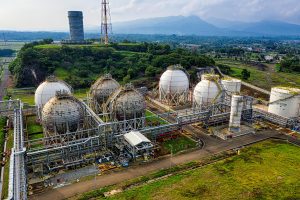The movement of people within Africa has long been a defining feature of the continent’s history, shaping economies, cultures, and societies. From pastoralists migrating in search of greener pastures to traders crossing borders for opportunities, migration in Africa has always been an integral part of its story. Yet, the current global trend toward deglobalization—a retreat from interconnectedness that has defined recent decades—is poised to reshape this dynamic in profound ways, creating challenges and opportunities for a continent where migration is both a lifeline and a liability.
The African Union (AU) has long championed free movement across the continent, recognizing migration as a driver of economic growth and regional integration. Initiatives such as the African Continental Free Trade Area (AfCFTA) and the Protocol on Free Movement of Persons aim to ease cross-border movement, fostering intra-African trade and labor mobility. In theory, these frameworks should create a continent where skilled workers can easily migrate to where they are needed, filling gaps in sectors like healthcare and technology. However, implementation has been slow and uneven. Political resistance, driven by fears of job competition and cultural dilution, continues to hinder progress.
Amid this backdrop, deglobalization adds another layer of complexity. The global retreat from liberalized trade and cooperation, driven by protectionist policies in major economies like the United States and the European Union, is altering the traditional pathways of migration. African migrants seeking opportunities abroad now face tighter border controls, stricter visa requirements, and increasingly hostile political climates. In Europe, for instance, the rise of far-right parties has shifted public discourse, framing African migration as a threat rather than an opportunity. Policies aimed at curbing migration often ignore the root causes, such as economic instability, conflict, and climate change, leaving many Africans stranded in limbo or resorting to perilous routes.
At the same time, the shifting world order has implications for African countries that rely on remittances. In 2022, remittances to sub-Saharan Africa reached $53 billion, outpacing foreign direct investment in the region. For countries like Nigeria, Kenya, and Ghana, these funds are a lifeline, sustaining households and driving local economies. However, as host nations tighten immigration policies and crack down on undocumented workers, the flow of remittances could dwindle, exacerbating economic hardships in countries that are already grappling with debt and inflation.
Yet, deglobalization is not just about restrictions. It also presents opportunities for Africa to rethink its migration dynamics. With global trade becoming more fragmented, regional integration becomes even more crucial. Intra-African migration, which accounts for 80% of all migration on the continent, could become the backbone of Africa’s labor market. Countries like South Africa and Côte d’Ivoire, which have historically attracted large numbers of migrants from neighboring states, may find themselves playing an even more pivotal role as regional hubs. This shift could encourage African countries to invest more in education and training, ensuring that their citizens can compete in regional labor markets rather than relying on external opportunities.
Climate change further complicates the picture. Rising temperatures, desertification, and extreme weather events are displacing millions, particularly in the Sahel region. Migration driven by environmental factors often lacks the economic incentives that make labor migration sustainable. Without adequate planning, climate-induced migration risks overwhelming urban centers that are already struggling with infrastructure deficits. Deglobalization, with its inward-looking policies and reduced international cooperation, offers little support for addressing these crises, leaving African governments to shoulder the burden alone.
Technology offers a glimmer of hope. Digital platforms are connecting migrants to opportunities in ways that were unimaginable a decade ago. In Ghana, platforms like Field Ready match skilled workers with employers in sectors like construction and engineering, reducing reliance on external migration. Meanwhile, fintech innovations are making it easier for migrants to send remittances home, bypassing traditional banking systems and lowering transaction costs. These developments suggest that even as global barriers rise, African ingenuity can create pathways to resilience.
From my perspective, the challenge lies not just in navigating the immediate impacts of deglobalization but in fundamentally rethinking Africa’s approach to migration. Too often, migration policies are reactive, driven by crises rather than long-term strategies. What if African governments treated migration not as a problem to be managed but as an asset to be leveraged? A skilled Kenyan nurse moving to Botswana to fill a healthcare gap is not a loss for Kenya—it’s an example of regional cooperation that benefits both countries. Similarly, a Malian farmer relocating to Côte d’Ivoire to escape desertification is an opportunity for agricultural innovation, provided there’s support for integration.
Deglobalization might limit Africa’s access to global markets and labor opportunities, but it also forces the continent to look inward, to invest in its own people and systems. The African Union’s Agenda 2063 envisions an Africa where free movement and economic integration are the norm. Achieving this vision will require not only political will but also practical steps: harmonizing visa regimes, investing in infrastructure to support urbanization, and creating safety nets for climate-displaced populations.
There’s a temptation to see the world’s retreat from globalization as purely negative for Africa, and the challenges are indeed formidable. But history shows that Africa thrives on adaptability. The continent’s migration patterns have evolved over centuries, shaped by colonial borders, independence movements, and economic cycles. Today’s shifts are just another chapter in that story. The question is whether Africa will seize this moment to shape its narrative or remain at the mercy of external forces.
Migration has always been a reflection of hope—a belief that there’s something better on the horizon. Even in a world that seems to be closing its doors, that hope endures. Africa’s challenge is to ensure that hope is not misplaced, to build a continent where opportunity doesn’t require crossing oceans but can be found within its borders. The tools to achieve this exist; what’s needed now is the courage to use them.



